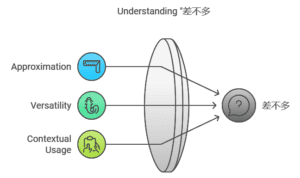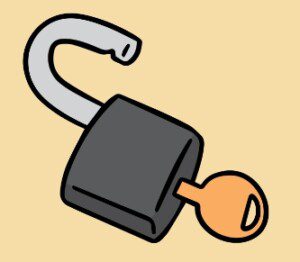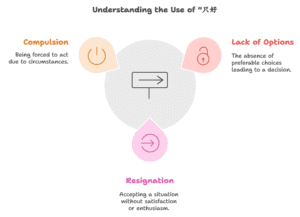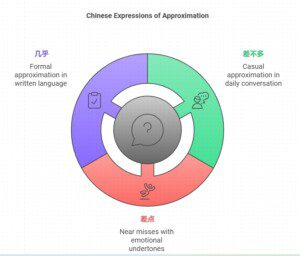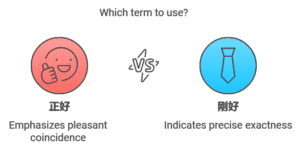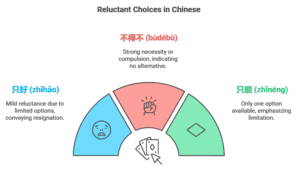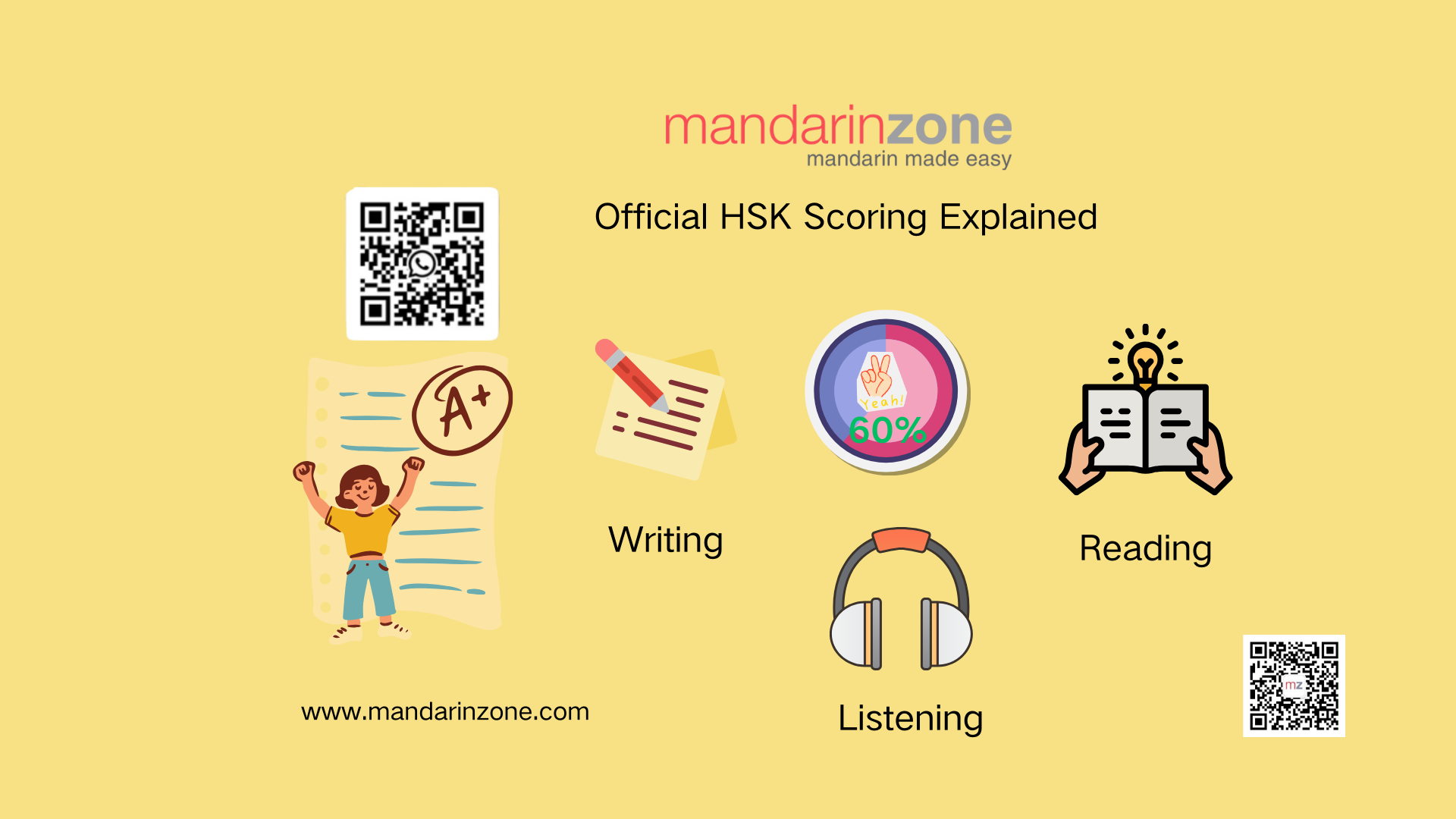Table of ContentsAll Posts
- HSK 4 Grammar Basics: 差不多, 差点, 几乎, 正好, 只好
- Comparative Analysis: 差不多 vs. 差点 vs. 几乎
- Comparing 正好 and 刚好: Usage Scenarios and Differences
- Expressing Reluctant Choices: 只好 vs. 不得不 vs. 只能
- Common Mistakes and How to Avoid Them: 差不多, 差点, 几乎, 正好, 只好
- Cultural Insights: Using 差不多, 正好, and Other Expressions
- Summary: Mastering HSK 4 Grammar Points 差不多, 差点, 几乎, 正好, 只好
- Learn Chinese in Beijing
- HSK 4 Grammar Online Exercise
差不多, 差点, 几乎, 正好, 只好
Learning Mandarin Chinese can be both exciting and challenging, especially when it comes to grasping subtle differences between similar expressions. At the HSK 4 level, understanding these nuances becomes essential for effective communication and fluency. Words like 差不多 (chàbuduō), 差点 (chàdiǎn), 几乎 (jīhū), 正好 (zhènghǎo), and 只好 (zhǐhǎo) are frequently used in daily conversations. Mastering their usage not only helps in accurate expression but also deepens your cultural insights and interactions with native speakers.
Basic Usage of 差不多, 差点, 几乎, 正好, 只好
差不多 (chàbuduō) — “Almost” or “Nearly the Same”
- Meaning: “Almost,” “nearly,” or “about the same.”
- Usage: Used to indicate that something is close to a particular state, amount, or degree, but not exactly there. It conveys a sense of approximation and is often employed in various contexts, making it a versatile expression in the Chinese language.
- Examples:
- 我差不多写完了。
- Translation: “I’ve almost finished writing.”
- 这两件衣服的颜色差不多。
- Translation: “The colors of these two pieces of clothing are almost the same.”
- 现在差不多七点了。
- Translation: “It’s almost seven o’clock now.”
- 我差不多写完了。
差点 (chàdiǎn) — “Almost Happened but Didn’t”
- Meaning: “Almost happened but didn’t,” “nearly.” It is used to describe situations where an event was on the verge of happening but did not come to fruition. It captures the essence of something that was close to occurring, highlighting the fine line between success and failure.
- Usage: In various contexts, “almost” can express both relief and regret. When someone narrowly avoids a negative outcome, it can evoke a sense of relief. Conversely, when something desirable nearly happens but ultimately does not, it may lead to feelings of regret.
- Examples:
- 我差点错过了火车。
- Translation: “I almost missed the train.”
- 他差点摔倒。
- Translation: “He almost fell.”
- 差点忘了告诉你一件重要的事。
- Translation: “I almost forgot to tell you something important.”
- 我差点错过了火车。
几乎 (jīhū) — Formal Expression of “Almost”
- Meaning: “Almost,” “nearly,” often more formal. It signifies a state of being close to something without being completely so. It serves as a qualifier that enhances the extent of a statement, suggesting that while something may not be entirely true, it is sufficiently close to warrant consideration. This makes “virtually” a powerful word in both casual and formal contexts.
- Usage: Commonly used in both spoken and written language to indicate that something is nearly the case, emphasizing the extent.
- Examples:
- 他几乎每天都跑步。
- Translation: “He runs almost every day.”
- 这项任务几乎不可能完成。
- Translation: “This task is almost impossible to complete.”
- 她高兴得几乎跳了起来。
- Translation: “She was so happy that she almost jumped up.”
- 他几乎每天都跑步。
正好 (zhènghǎo) — “Just Right” or “Happen To”
- Meaning: “Just right,” “happen to,” “exactly.” It conveys the idea of something being perfectly aligned with a situation or requirement.
- Usage: It is used to express that something meets the needs of the moment in terms of timing, quantity, or suitability perfectly. It often suggests a fortunate coincidence or ideal suitability, like arriving just in time for an event or having just enough ingredients to cook a recipe.
- Examples:
- 正好今天有空,我们一起去看电影吧。
- Translation: “I happen to be free today; let’s go watch a movie together.”
- 这件衣服你穿正好。
- Translation: “This piece of clothing fits you perfectly.”
- 我到车站时,车正好来了。
- Translation: “When I arrived at the station, the bus happened to come.”
- 正好今天有空,我们一起去看电影吧。
只好 (zhǐhǎo) — “Have No Choice But To”
- Meaning: “Have no choice but to,” “can only.” It is used to express a situation where one is compelled to make a decision or take an action due to a lack of preferable options. It conveys a sense of resignation, indicating that the speaker is not entirely satisfied with the choice they are making but feels it is the only viable path forward.
- Usage: Indicates a reluctant decision made due to lack of better options. It often appears at the beginning of a clause, following a description of the circumstances that limit the speaker’s choices.
- Examples:
- 雨太大了,我们只好待在家里。
- Translation: “It’s raining too heavily; we have no choice but to stay at home.”
- 他生病了,比赛只好取消。
- Translation: “He is sick; the match has to be canceled.”
- 没有公交车了,我只好走回家。
- Translation: “There are no buses; I have no choice but to walk home.”
- 雨太大了,我们只好待在家里。
Comparative Analysis of 差不多 vs. 差点 vs. 几乎
差不多 vs. 差点 vs. 几乎: Understanding the Nuances
差不多 (chàbuduō)
- Tone: Casual, often used in daily conversations.
- Context: General approximation without urgency or criticality.
- Nuance: Implies that two things are similar or that something is nearly complete.
Example:
- 我们的想法差不多。
- “Our ideas are about the same.”
差点 (chàdiǎn)
- Tone: Indicates a narrow miss, often with emotional undertones such as relief or regret.
- Context: Near occurrences that didn’t happen, sometimes with potential negative consequences.
- Nuance: Highlights how close something came to happening.
Example:
- 我差点撞到那辆车。
- “I almost hit that car.”
几乎 (jīhū)
- Tone: Neutral to formal, suitable for both spoken and written language.
- Context: Emphasizes the extent to which something is nearly true, often used for exaggeration or emphasis.
- Nuance: Suggests that the situation is very close to a certain state.
Example:
- 他忙得几乎没有时间吃饭。
- “He is so busy that he almost has no time to eat.”
Summary Table:
| Expression | Tone | Context | Nuance |
|---|---|---|---|
| 差不多 | Casual | General approximation | Similarity or near completion |
| 差点 | Emotional | Near occurrences that didn’t happen | Narrow miss with potential consequences |
| 几乎 | Neutral | Emphasizing extent or degree | Very close to being true |
Comparing 正好 and 刚好: Which One to Use?
正好 (zhènghǎo) — Emphasizing Coincidence
- Meaning: Emphasizes a coincidental or perfect timing.
- Usage: Highlights that something happens to be just right, often pleasantly surprising.
- Examples:
- 你来了,正好一起吃饭。
- “You’re here; just in time to eat together.”
- 这双鞋你穿正好。
- “These shoes fit you perfectly.”
- 你来了,正好一起吃饭。
刚好 (gānghǎo) — Indicating Exactness
- Meaning: “Just,” “exactly,” indicating precise conditions or timing.
- Usage: Describes something that has just occurred or is exactly a certain amount, more objective and factual.
- Examples:
- 我刚好看见他出门。
- “I just saw him leave.”
- 钱刚好够买一张票。
- “The money is just enough to buy one ticket.”
- 我刚好看见他出门。
Comparison Summary:
- 正好 often conveys a sense of pleasant coincidence or suitability.
- 刚好 focuses on exactness or immediacy without the connotation of coincidence.
Expressing Reluctant Choices: 只好 vs. 不得不 vs. 只能
只好 (zhǐhǎo) — Mild Reluctance
- Degree: Mild reluctance due to limited options.
- Usage: Used when making a choice because better options are unavailable.
- Examples:
- 天气不好,我们只好改天再去了。
- “The weather is bad; we have no choice but to go another day.”
- 天气不好,我们只好改天再去了。
不得不 (bùdébù) — Strong Necessity
- Degree: Strong necessity or compulsion, with no way to avoid.
- Usage: Indicates an action that must be taken, often due to external pressures.
- Examples:
- 他生病了,不得不去医院。
- “He is sick and has to go to the hospital.”
- 他生病了,不得不去医院。
只能 (zhǐnéng) — Only One Option Available
- Degree: Emphasizes limitation to a single option.
- Usage: Used when there’s only one possible choice or solution.
- Examples:
- 时间太紧,我们只能放弃这个计划。
- “Time is too tight; we can only abandon this plan.”
- 时间太紧,我们只能放弃这个计划。
Summary Table:
| Expression | Degree | Usage | Examples |
|---|---|---|---|
| 只好 | Mild reluctance | Limited options | 我们只好步行回去。 (“We have no choice but to walk back.”) |
| 不得不 | Strong necessity | Compulsion due to external factors | 他不得不辞职。 (“He has no choice but to resign.”) |
| 只能 | Single option | Only one possible choice | 我们只能相信他。 (“We can only trust him.”) |
Common Mistakes with 差不多, 差点, 几乎, 正好, 只好 and How to Avoid Them
Mistake 1: Mixing Up 差不多 and 差点
- Issue: Using 差不多 when 差点 is appropriate, and vice versa.
- Example of Mistake:
- 我差不多迟到了。 (Incorrect)
- Correction:
- 我差点迟到了。 (Correct)
- Explanation: 差点 is used to indicate that something almost happened but didn’t. 差不多 suggests similarity or approximation, not near occurrence.
Mistake 2: Interchanging 正好 and 刚好 Without Noting Nuance
- Issue: Using 正好 and 刚好 interchangeably without considering nuance.
- Example of Mistake:
- 我正好看见他出门。 (Could be acceptable but may not convey immediacy)
- Correction:
- 我刚好看见他出门。 (Better for expressing “I just saw him leave”)
- Explanation: 刚好 emphasizes the timing (just now), while 正好 implies a coincidence.
Mistake 3: Overusing 几乎 in Casual Speech
- Issue: Using 几乎 in informal contexts where 差不多 would be more appropriate.
- Example of Mistake:
- 我几乎准备好了。 (Sounds formal or awkward)
- Correction:
- 我差不多准备好了。 (More natural in casual conversation)
- Explanation: 差不多 is more commonly used in spoken language for casual approximation.
Tips to Avoid Mistakes
- Context Matters: Always consider the situation and the emotional undertones you wish to convey.
- Listen and Observe: Pay attention to how native speakers use these expressions in different contexts.
- Practice Makes Perfect: Use these words in your own sentences to become more comfortable with their nuances.
Cultural Insights into Using 差不多, 正好, and Other Expressions
The Cultural Significance of 差不多
In Chinese culture, 差不多 reflects a flexible and non-exacting attitude. It embodies a tolerance for minor differences and an acceptance of things being “good enough.”
- Example in Culture:
- 老板说我的工作还差不多。
- “The boss said my work is acceptable.”
- Cultural Note: This could imply that improvements are needed, but it’s acceptable for now.
- 老板说我的工作还差不多。
Using 正好 to Politely Decline Offers
正好 can be tactfully used to refuse an invitation or offer without causing offense.
- Example:
- A: 你周末有空吗?一起去郊游吧。
- “Are you free this weekend? Let’s go on an outing.”
- B: 谢谢你的邀请,正好我周末要陪家人。
- “Thank you for the invitation, but I happen to need to spend time with my family this weekend.”
- A: 你周末有空吗?一起去郊游吧。
- Cultural Insight: Using 正好 in this way softens the refusal and shows appreciation for the invitation.
Idioms and Proverbs Involving These Expressions
- 差不多先生 (Mr. Almost):
- Refers to someone who doesn’t pay attention to details and considers everything as “good enough.”
- Cultural Reference: There is a famous short story called “差不多先生传” by Hu Shi, criticizing this careless attitude.
Summary: Mastering 差不多, 差点, 几乎, 正好, 只好 at HSK Level 4 Grammar
Understanding the subtle differences between 差不多, 差点, 几乎, 正好, 刚好, 只好, 不得不, and 只能 is essential for effective communication in Mandarin Chinese. These expressions, while similar, carry unique nuances and are used in specific contexts.
- 差不多: Used for general approximations and similarities.
- 差点: Indicates something almost happened but didn’t.
- 几乎: Emphasizes the extent to which something is nearly true.
- 正好: Highlights coincidence or perfect timing.
- 刚好: Focuses on exactness or immediacy.
- 只好: Indicates a reluctant choice due to limited options.
- 不得不: Shows strong necessity or compulsion.
- 只能: Emphasizes that only one option is available.
By paying attention to context, emotional tone, and cultural connotations, you can choose the most appropriate expression. Regular practice and immersion in the language will help internalize these nuances.
Learn Chinese in Beijing
Ready to Elevate Your Mandarin Skills?
Unlock your full potential in Mandarin Chinese with our expert-led HSK 4 courses at Mandarin Zone. Whether you’re aiming for fluency or preparing for the HSK 4 exam, our tailored programs and experienced instructors are here to guide you every step of the way. Join our community of dedicated learners today and take the next step towards mastering Chinese!
Contact us now to enroll or learn more:
- Email: [email protected]
- Phone: +86-10-65380023
- Website: https://www.mandarinzone.com/contact-us/
Don’t miss out on the opportunity to enhance your language skills and immerse yourself in Chinese culture. Enroll today and start your journey to fluency!
Why Choose Mandarin Zone School?
- Empowering Global Learners Across Industries
- Trusted by Embassies and Multinational Corporations
- Expertise in Tailoring to Diverse Learning Needs
- Seasoned Instructors, Personalized Mandarin Mastery
Why Learn Chinese in Beijing?
- Study in the Birthplace of Standard Mandarin
- Practice Chinese in Real-Life Situations
- Experience Rich Chinese Culture
- Learn in China’s Cultural and Political Center
HSK 4 Grammar Series 2 并不/并没有 不一定、不见得、有,还,也
Free HSK 4 Grammar Online Quiz
HSK Level 4-All You Need To Know About HSK 4
HSK 4 Vocabulary List + Excel and PDF (with 3 Free Quiz Sheets)
HSK 4 Grammar Online Exercise
Expressions of Approximation and Choice in HSK 4 Grammar Test



